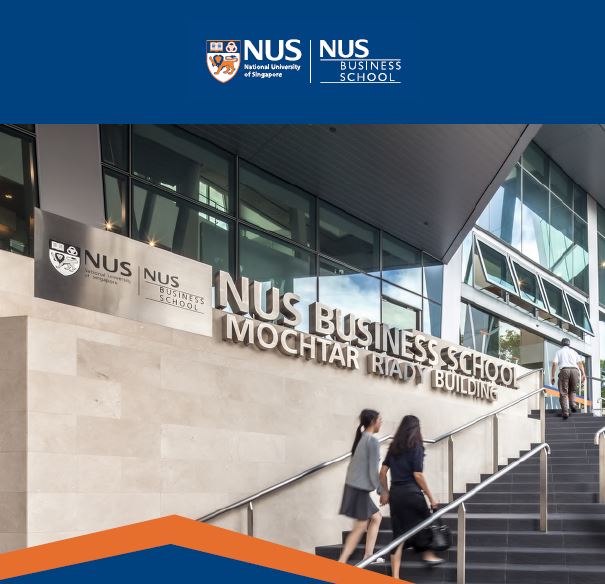NUS AMP 4 – Leadership Processes and Communications

This course will help you understand the importance of communication for leaders, identify the key elements of powerful leadership communication, develop essential leadership communication skills, apply different communication styles to different leadership situations, understand the different types of persuasion and influence techniques, use storytelling to engage your listeners, understand negotiation principles and its significance in conflict resolution and agreements, differentiate between distributive and integrative negotiation approaches, analyze BATNA, reservation points, and the bargaining range, master bargaining techniques for both distributive and integrative negotiations, and develop skills to navigate challenges in intercultural negotiations.
Course Learning Objectives:
- Learn the essentials of leadership communication skills and its importance for leaders.
- Gain an understanding of the ways to achieve powerful leadership communication.
- Acquire an understanding of various communication styles for effective leaders.
- Understand the method of assessing leadership communication in an organization.
- Learn effective persuasion and influence techniques to motivate others.
- Understand the differences between influence and persuasion.
- Engage your listeners with help of the art of “storytelling”.
- Understand negotiation principles and its significance in conflict resolution and agreements.
- Differentiate between distributive and integrative negotiation approaches.
- Analyze BATNA, reservation points, and the bargaining range.
- Master bargaining techniques for both distributive and integrative negotiations.
- Develop skills to navigate challenges in intercultural negotiations.
Faculty

Prof Michael Jenkins
CEO, Expert Humans Pte Ltd
Michael is facilitator and coach for Human Resources, Human Capital and Leadership programmes, together with sustainability programmes, organisational development programmes and change programmes (Singapore/SE Asia and UK/Europe). Michael is currently working on understanding the impact of technology on people in organisations: where emotional intelligence (EI) meets artificial intelligence (AI). His EI/AI Nine Box Grid has been developed to enable organisations to have good strategic conversations about their progress (or lack of) on both the human and non-human dimensions of organisational life. He was co-author of the Human Capital Leadership Institute’s latest research Human Capital Prisms which looks at ambidexterity, agility, appreciative enquiry and authentic human capital practices. The core thought leadership areas include altruism, compassion and empathy together with Purpose- and Values-driven organisations and sustainability. The UK’s HR Magazine named Michael as one of the UK’s Most Influential Thinkers in Human Resources in 2014 and again in 2016.
Michael is facilitator and designer of Humanising the Workplace (supported by SHRI, 2020); Programme Director (design/delivery) of the NUS EMBA Managing Human Capital module (2020); co-facilitator on a leadership programme for SMU Libraries (with the Entheo Network, 2020); facilitator for Organisation Design Essentials for CIPD Asia; customised programmes for NUS Business School (NTUC Enterprises, Bank Indonesia). Also, Michael is facilitator on the Singapore Business Leaders Programme (Doing Well and Doing Good in Asia: Human Capital Practices and Sustainability) and co-theme-weaver for the programme; facilitator on Human Resources Leadership Programme (Making Human Capital Human); facilitator on the Global Leadership Programme (Doing Well and Doing Good in Asia); facilitator on the Asian Financial Leaders Programme (The Intersection of Emotional Intelligence and Artificial Intelligence).
Syllabus
Learning Objectives:
- Learn the essentials of leadership communication skills, styles, assessment and their importance.
Module Components:
Please note that the following video lectures and readings are pre-work materials for the live online session scheduled on March 9, 2024:
Video Lectures:
- Why is Effective Communication Important for Leaders
- Key to Powerful Leadership Communication
- How your Brain Responds to Stories and Why They’re Crucial for Leaders
- The Magical Science of Storytelling by David JP Phillips
Readings:
- Essential Leadership Communication Skills
- Communication Styles for Effective Leaders
- Communication Assessment Sample
- Impact of Technology on Human Resource Jobs & Skills
- Storytelling Mountain
Quiz:
- Leadership Communications
Learning Objectives:
- Learn effective persuasion and influence techniques to motivate others.
- Understand the differences between influence and persuasion.
- Engage your listeners with help of the art of “storytelling”.
Module Components:
Please note that the following video lectures and readings are pre-work materials for the live online session scheduled on March 15, 2024:
Video Lectures:
- The Difference Between Persuasion and Negotiation
- An Example – Persuasion and Influence
- Interview with Oussama – Storytelling
Readings:
- What is Influence?
- Strengthen Your Ability to Influence People
Quiz:
- Influence and Persuasion – Quiz
Learning Objectives:
- Understand negotiation principles and its significance in conflict resolution and agreements.
- Differentiate between distributive and integrative negotiation approaches.
- Analyze BATNA, reservation points, and the bargaining range.
- Master bargaining techniques for both distributive and integrative negotiations.
- Develop skills to navigate challenges in intercultural negotiations.
Module Components:
Please note that the following video lectures and readings are pre-work materials for the live online session scheduled on March 23, 2024:
Video Lectures:
- Types of Negotiations
- The Principle of the Divided Cloth
- What is the Pie?
- Shapley Value
- Example – Airline Cost Sharing
- Distributive Negotiations
- Bargaining Techniques in Distributive Negotiations
- Integrative Negotiations
- Bargaining Techniques in Integrative Negotiations
- Intercultural Negotiations
- Interview with Mr. Oussama – Authenticity and Trust
Readings:
- How to Find the Zone of Possible Agreement (ZOPA)
- Proven Strategies for Success in Distributive Negotiations
Quiz:
- Negotiations – Quiz
Support
Please email [email protected] for any support required with respect to the program, course or platform.
